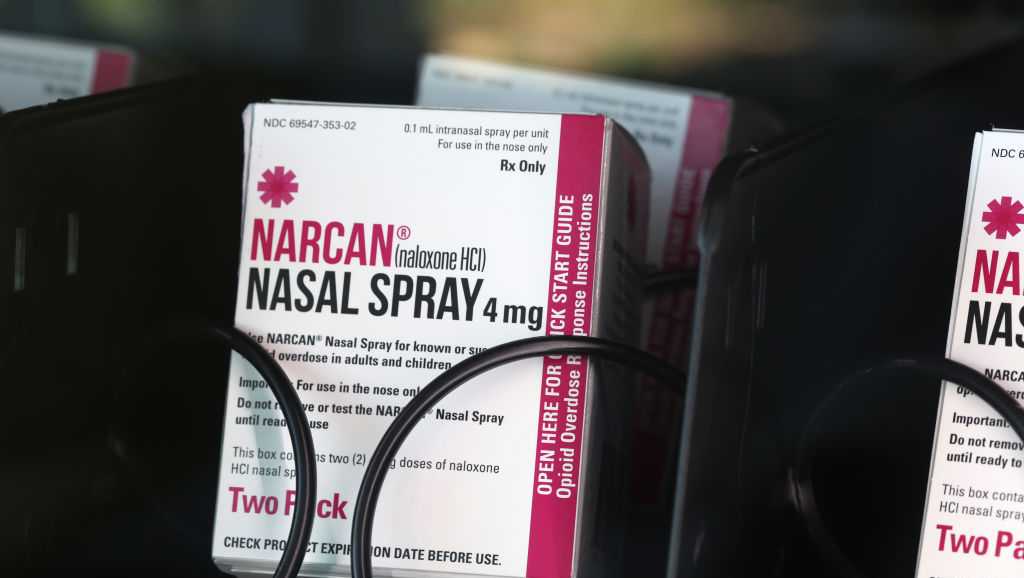Josh Spring, executive director of the Greater Cincinnati Homeless Coalition, expressed his concerns about a new executive order from President Donald Trump: “Ending Crime and Disorder on America’s Streets.””It would be bad enough if it was targeting a small group of people. But this is targeting a lot of us,” Spring said.Designed to tackle America’s homelessness problem, the order calls for an end to federal support for policies that help people living on the streets find stable housing as a first step to a more stable life.”It’s just the idea, if you’re human and you’re breathing, you deserve a place to live, right?” Spring said. “And if you are somebody who’s dealing with addiction or mental illness, we know that you’re going to be able to deal with those much better if you have a foundation.”Spring is also alarmed by the president’s push to use civil commitment tactics to restore public order, which could involve forcing individuals into treatment without their consent.”We’re going to put you in an institution, and you don’t get a say in, is that what we want? And I don’t think most of us want that,” Spring said.The executive order also suggests that harm reduction vending machines, like one set up in the 800 block of Broadway, could be deemed illegal. If nothing else, the directive says not to “fund programs that fail to achieve adequate outcomes, including so-called ‘harm reduction’ or ‘safe consumption’ efforts that only facilitate illegal drug use and its attendant harm.”Tom Synan, chief of the Newtown Police Department and an expert on addiction, questioned the scope of the order.”The confusion is, does this apply to everybody?” Synan said.He highlighted the success of harm reduction programs in saving lives in Greater Cincinnati.”There are multiple people, even those without addiction, that use these harm reduction materials like Narcan and fentanyl test strips,” Synan said.Synan expressed concern that the executive order could reverse years of progress in combating deadly drugs in the region.”It’s worked. We’ve seen it here. We’re saving money, saving lives and connecting more people to treatment,” Synan said.While he understands the president’s desire to reduce homelessness, Synan believes that eliminating federal support for programs that have helped individuals rejoin the ranks of productive citizens makes little sense.”This executive order is vague. It’s confusing. It’s conflicting. This is not what we did under the first Trump administration. He was very much harm-reduction — Naloxone, fentanyl test strips,” Synan said.
Josh Spring, executive director of the Greater Cincinnati Homeless Coalition, expressed his concerns about a new executive order from President Donald Trump: “Ending Crime and Disorder on America’s Streets.”
“It would be bad enough if it was targeting a small group of people. But this is targeting a lot of us,” Spring said.
Designed to tackle America’s homelessness problem, the order calls for an end to federal support for policies that help people living on the streets find stable housing as a first step to a more stable life.
“It’s just the idea, if you’re human and you’re breathing, you deserve a place to live, right?” Spring said. “And if you are somebody who’s dealing with addiction or mental illness, we know that you’re going to be able to deal with those much better if you have a foundation.”
Spring is also alarmed by the president’s push to use civil commitment tactics to restore public order, which could involve forcing individuals into treatment without their consent.
“We’re going to put you in an institution, and you don’t get a say in, is that what we want? And I don’t think most of us want that,” Spring said.
The executive order also suggests that harm reduction vending machines, like one set up in the 800 block of Broadway, could be deemed illegal. If nothing else, the directive says not to “fund programs that fail to achieve adequate outcomes, including so-called ‘harm reduction’ or ‘safe consumption’ efforts that only facilitate illegal drug use and its attendant harm.”
Tom Synan, chief of the Newtown Police Department and an expert on addiction, questioned the scope of the order.
“The confusion is, does this apply to everybody?” Synan said.
He highlighted the success of harm reduction programs in saving lives in Greater Cincinnati.
“There are multiple people, even those without addiction, that use these harm reduction materials like Narcan and fentanyl test strips,” Synan said.
Synan expressed concern that the executive order could reverse years of progress in combating deadly drugs in the region.
“It’s worked. We’ve seen it here. We’re saving money, saving lives and connecting more people to treatment,” Synan said.
While he understands the president’s desire to reduce homelessness, Synan believes that eliminating federal support for programs that have helped individuals rejoin the ranks of productive citizens makes little sense.
“This executive order is vague. It’s confusing. It’s conflicting. This is not what we did under the first Trump administration. He was very much harm-reduction — Naloxone, fentanyl test strips,” Synan said.
